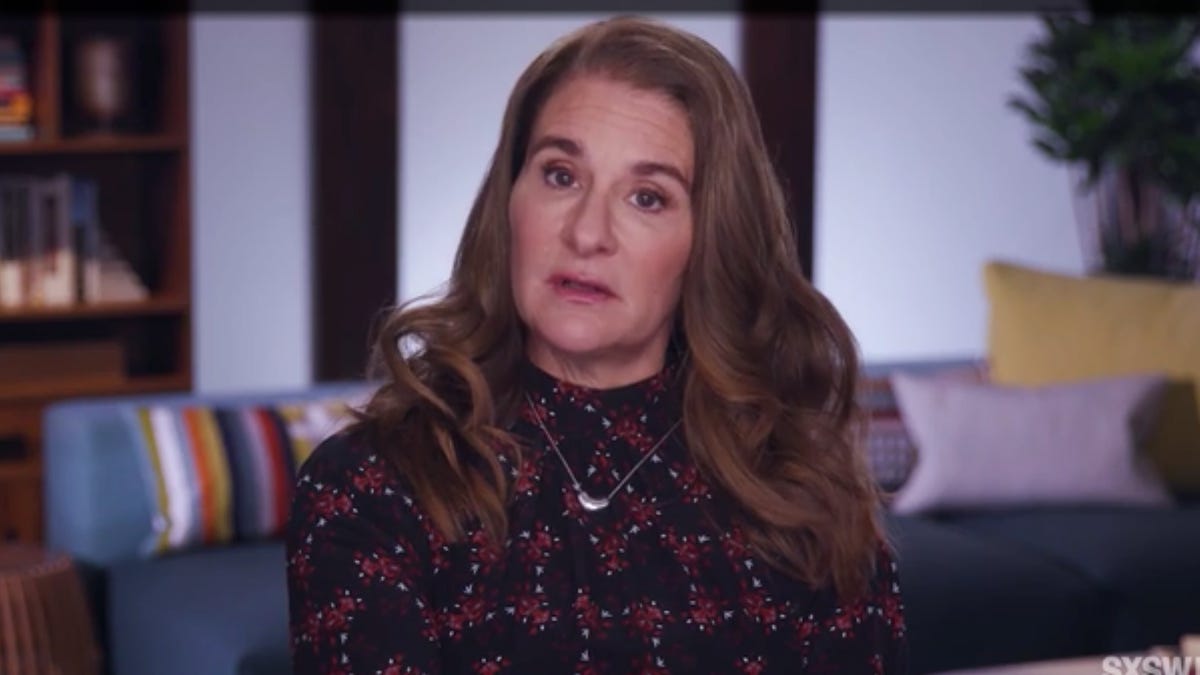Melinda Gates, diversity advocates address the long road to equality at SXSW
Issues like no paid family medical leave and weak employee retention continue to hinder inclusivity efforts, experts say.

At a South by Southwest panel Thursday, Melinda Gates addressed the circumstances that are forcing women to drop out of the labor force during the pandemic.
When Melinda Gates would travel overseas, she'd often think about what a difference it'd make if women in places like Africa or Southeast Asia had more advancement opportunities. But on flights back to the US, she'd flip the question on herself and realize that even at home, there's plenty of room for growth.
"We are the only industrialized nation in the world that doesn't have a paid family medical leave policy," Gates said at a Thursday panel during this year's virtual South by Southwest conference. "The US has catching up to do on our entire child care sector and our caregiving sector. ... We're seeing during COVID [that] women are dropping out of the labor force in droves, and in the US, that has a lot to do with these caregiving responsibilities."
Gates' concerns are among many shared by diversity and inclusion advocates who spoke at SXSW this week. (Because the panels were prerecorded, speakers had no way of addressing specific recent events tied to race, like this week's shooting in Atlanta that killed eight people, including six Asian women.)
During another panel Tuesday, Lisa Godwin, senior consultant and creative technologist at The New York Times, and Lisa Magill, CEO of inclusion assessment platform Aleria, spoke about other workplace obstacles like boosting representation and retaining diverse talent.
Godwin says that over the past couple of years, she's seen more companies recruit a range of employees, but they're having a hard time keeping them.
"There's some sort of disconnect there of, OK, we're bringing in diverse talent, but they're here and now they're not happy," she said.
Magill notes that's why it's not enough to just track representation metrics. Rather, it's critical to ensure that companies take inclusion efforts seriously and pay attention to issues such as whether all employees are given the same level of respect and the ability to get fair compensation.
Companies, leaders and organizations also need to show humility by appreciating the insights different people can bring, Maxine Williams, Facebook's chief diversity officer, said Thursday during a panel she moderated with Jason Wright, president of the NFL's Washington Football Team. If you create spaces for people to contribute through something like an employee resource group, she said, you'll see "remarkable" results.
"The point of having cognitively diverse teams or groups of people working on problems together is to leverage all the stuff you don't have, all the experience you don't have, the things you haven't thought about," Williams said. "And often, it comes from people who are not considered the experts, but they may have the lived experiences you don't have. They have perspectives to bring."
Diversity and inclusion success has to be driven from the top, Magill says. At a company, that points to executives. But as Gates notes, national changes to policies like paid family medical leave roll up to political leaders. The philanthropist says that she's hopeful President Joe Biden's administration will initiate needed changes and that politicians on both sides of the aisle will put forward those policies.
"I'm encouraged," Gates said. "I think we will get there in the next four years."
CNET's Erin Carson contributed to this report.
Correction, March 22: This story initially misspelled the surname of a panel participant. The creative technologist at the New York Times is Lisa Godwin.

